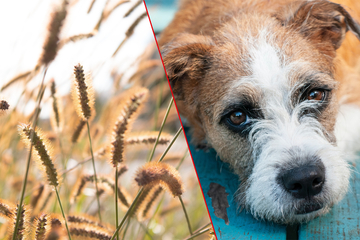What fruits can dogs eat?
Most darling doggos are absolutely infatuated with the sweet, fresh taste of fruit. Is it okay for your dog to eat fruit, though? What fruits are okay for dogs, and how much is okay to give them?
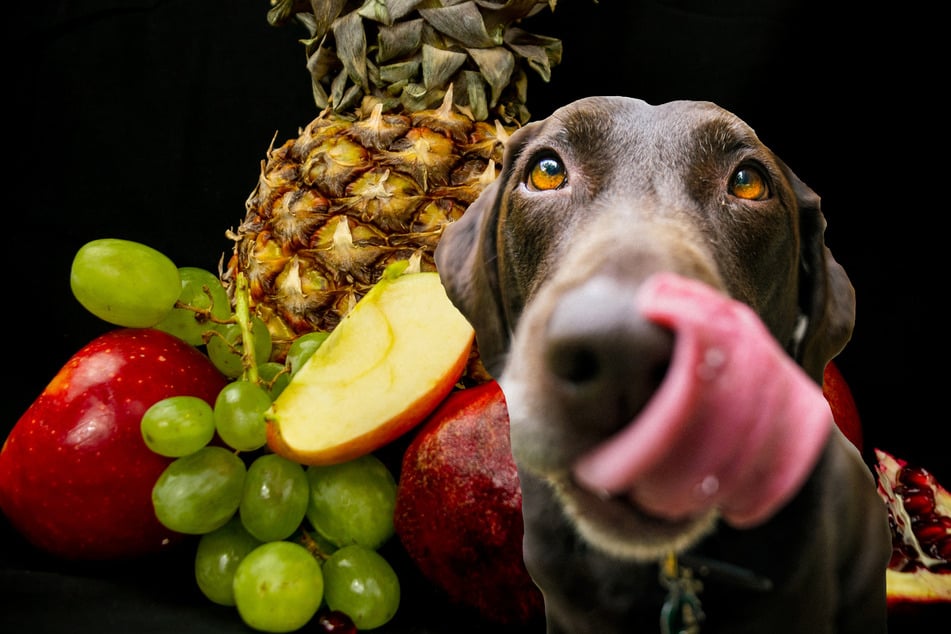
Dogs will eat nearly anything. But if your dog eats everything, it's bound to get sick – or an upset stomach at the very least.
Of course, it can be hard to control your dog twenty-four hours a day, and it'll likely scoop up a few unwanted things here and there, but it's always good to know what your pup should and shouldn't consume.
In this dog guide, TAG24 takes a look at whether dogs can eat fruit. What fruit is safe for dogs, how much should you give them, and what fruits are a little dangerous for your darling doggo?
Let's take a look!
Can dogs eat fruit?
Dogs are omnivores, meaning that they can eat more than just meat, but not necessarily that they can eat vegetables.
Most dog food contains a variety of ingredients, from the proteins you'd usually expect to the carbohydrates that make dog food so bad for cats. These carbohydrates might often be plant-based, but it's not the same as your dog literally "eating fruit."
Our darling doggos should generally stick to a diet that's high in protein (though not necessarily made up of raw meat or even solid pieces of meat) and is a balanced combination of both dry and wet food. You should make sure that its diet is constructed with the help of a vet using proper dog food, and not stuff lying around in your fridge.
To answer this question in a more straight-forward manner: Yes, dogs can eat a few pieces of fruit here and there, but they have no nutritional need for it. If your dog goes in for a nibble, don't stress about their safety. But don't make a habit of it either.
And remember: your veterinarian is the ultimate source for all final decisions related to your dog's health.
What fruit can dogs eat?
There are many different fruits that can generally be eaten by dogs safely.
As we have established, they shouldn't become a standard part of your dog's diet, but it's okay to have a slice of this and a piece of that here and there. Moderation is the name of the game, but if you notice that your dog has a bad reaction to anything, make sure the vet's number is in your phone.
What fruits are on the list, though? Let's go through a few of the most common fruits that people want to give to their dogs. What fruits can your dog eat, and which ones should you steer clear of?
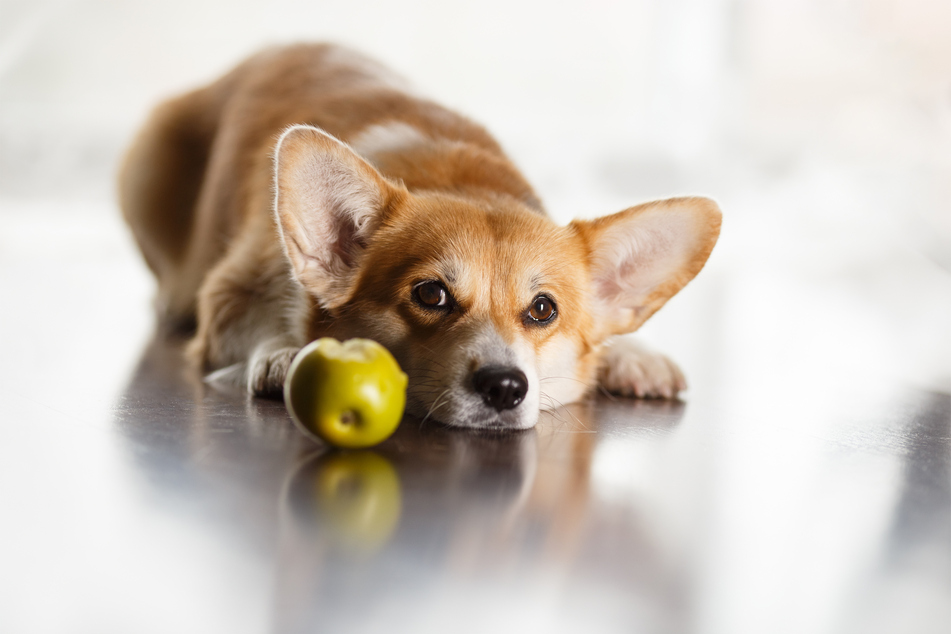
Can dogs eat apples?
Yes, it's okay for dogs to eat apples every now and again. In fact, they can be quite healthy. These balls of deliciousness contain a lot of vitamin A and C, helping to keep your doggo strong and healthy. They also contain a decent amount of fiber which can help keep their stomach and digestive system regulated. Just make sure that you take all the seeds and pips out first.
Can dogs eat bananas?
Bananas are actually a very healthy treat for your dog when provided in moderation. With very little fat and almost no sodium, they are a great source of potassium and a variety of different vitamins. Keep in mind, though, that bananas are chock-a-block full of sugar, so they're not something that your dog should be eating regularly.
Can dogs eat strawberries?
As we established in our dedicated article on whether dogs can eat strawberries, it is perfectly okay for your pup to have a strawberry or two every now and again. Indeed, strawberries can be quite healthy for your dog and aren't too high in sugar, either. Just make sure that it's, as usual, given to your dog in moderation.
Can dogs eat oranges?

There are few things in the world more obvious than the following fact: Oranges are, without a doubt, some of the most beloved fruit to have ever existed.
Luckily for doggos, they can get in on the action!
Dogs can eat oranges, and these beautiful balls of citrus will give them a ton of vitamin C, some potassium, and a couple of extra healthy boosts as well.
Can dogs eat blueberries?
Full of antioxidants that'll help your dog maintain its health and live a long, fruitful life (get it?), blueberries are perfectly safe for dogs. It's best to keep their blueberry intake to a minimum, though, because these little balls can produce some pretty intense bowel movements for dogs. So proceed with caution.
Can dogs eat carrots?
While carrots are not fruit – they're a root vegetable – again, the answer is simple: Your dog can eat a decent amount of carrot as it is very healthy and contains many useful vitamins.
On top of that, it can be a real workout for your dog's teeth and jaw to chew on a carrot - so that's nice too!
Can dogs eat raspberries?
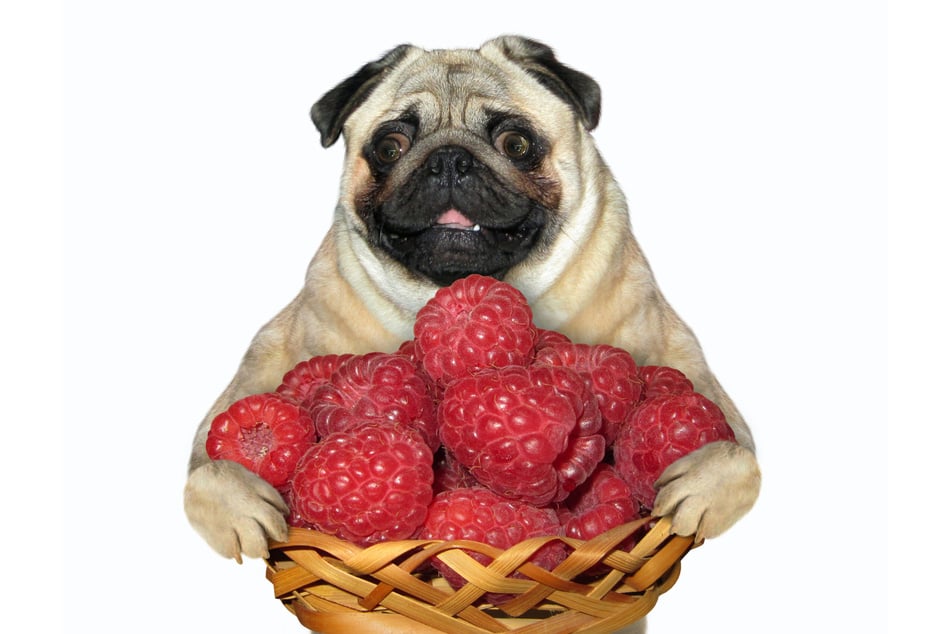
Raspberries are okay for your dog, but it is very unwise to give them more than just a couple.
While they are high in vitamins, fiber, and minerals, raspberries also contain various acids and chemicals that can have negative health consequences over larger spaces of time.
Be careful, and limit to just a small amount.
Can dogs eat peaches?
As long as you completely remove the pit beforehand, peaches are perfectly safe for dogs. Of course, you should be careful and only provide a few pieces at a time, but there is little risk if you catch your dog having chowed down on a peach or two - just as long as it hasn't eaten any or all of the pit.
Important: Fruits contain a lot of sugar. Sure, it's natural sugar, but it's still sugar. One of the most important reasons to moderate your doggo's fruit consumption is to limit their sugar intake and keep them from gaining weight. On top of that, sugar quickly rots teeth - so you should always brush your dog's teeth after it has eaten fruit.
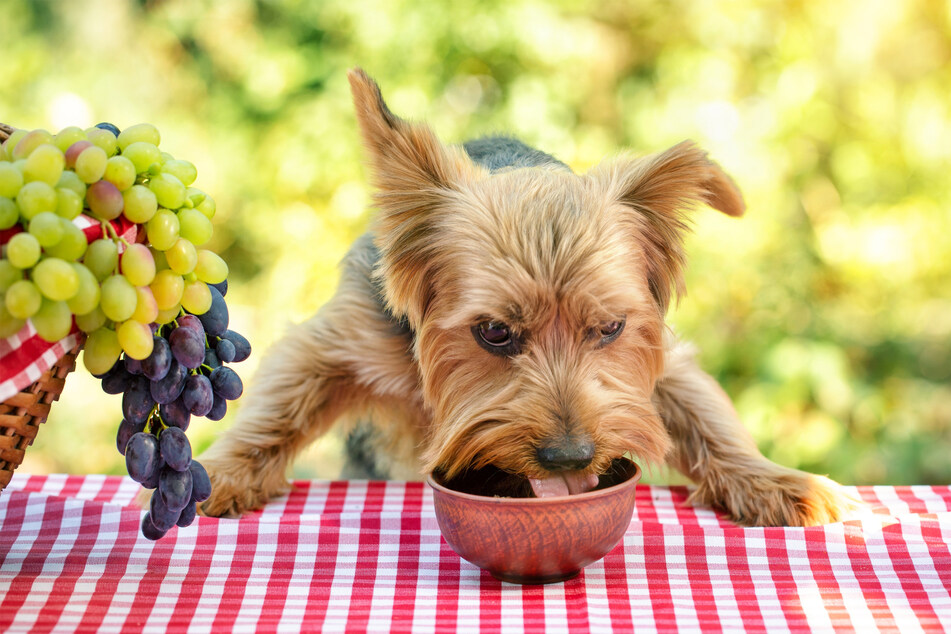
What fruits should dogs never eat?
There are many fruits that dogs can eat in moderation, but there are also a few fruits that are actively poisonous for your dog. These fruits can cause serious harm to your doggo's health and should be avoided at all cost.
Try to keep these fruits safely tucked away in the cupboard or the fridge, well out of reach of a curious canine.
Important: If your dog has eaten any of the following fruits, it must be taken immediately to the vet. In all likelihood, things will be okay, but it's best to be careful.
Here are the fruits that your dog should never eat:
- Avocado
- Grapes (and grape products like raisins)
- Cherries
- Tomatoes
- Rhubarb
- Any fruit's pips, seeds, and pits
Be very careful with any of these fruits, and keep them well out of reach of your dogs. When it comes to safer fruits, try to always remember that they should be de-seeded and pitted first.
Dogs can eat fruit and vegetables, but be careful
Your dog won't die if it swallows a blueberry, it's not going to keel over if it has a few apple slices here and there, a banana ain't gonna bring the bucket – but they all might bring on the runs. Fruit is a delicious snack with few disadvantages if you are a human, but dogs aren't necessarily going to respond well to everything we can eat - so it's best to be careful. Dogs can have sensitive stomachs.
A strawberry a day brings some health benefits, but four apples a day is going to become a problem.
Your dog can eat some fruit and vegetables here and there, but caution is the name of the game, and your veterinarian should always be involved when making dietary decisions.
Cover photo: Collage: Unsplash/Laura Ohlman & James Barker


